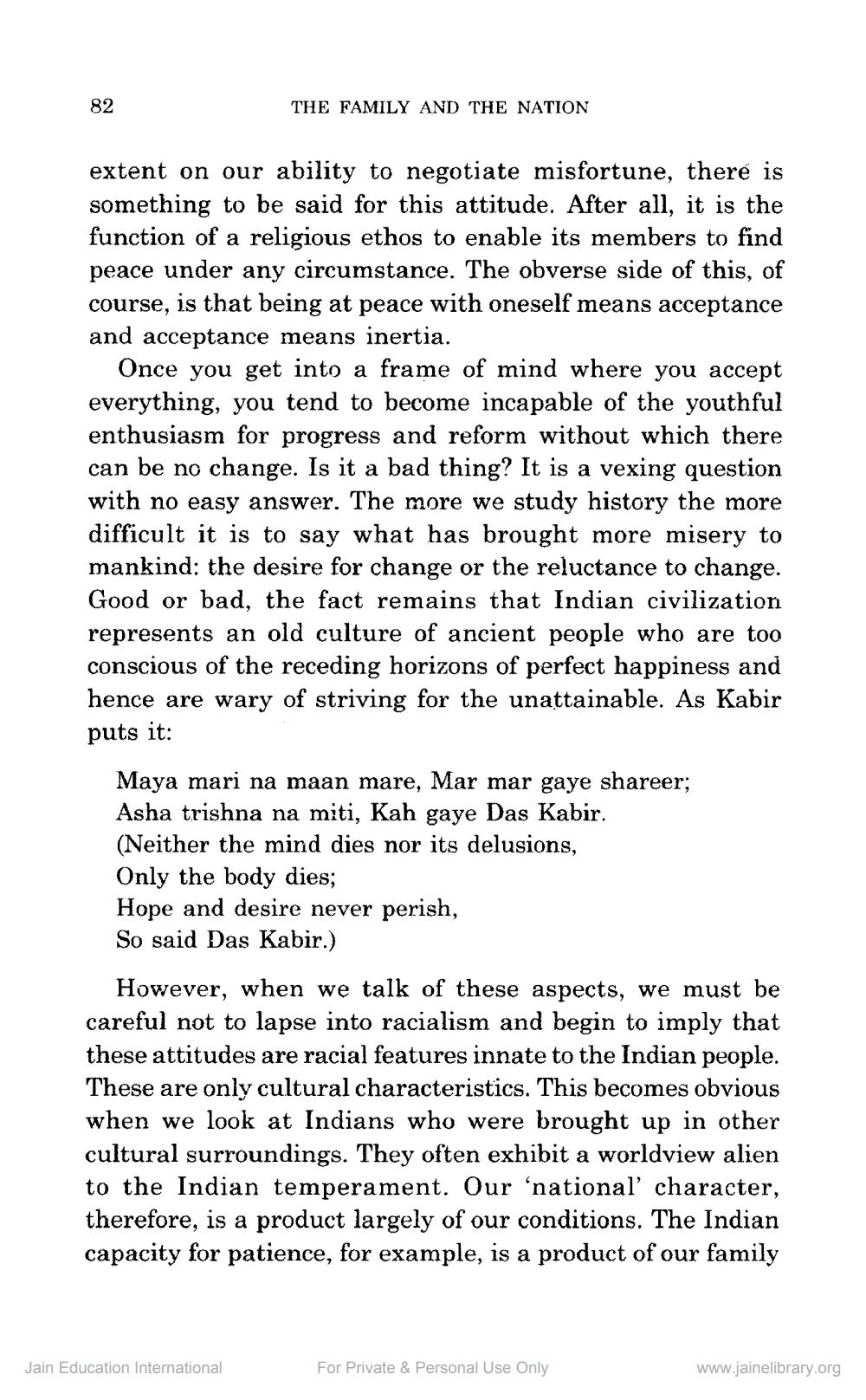________________
82
THE FAMILY AND THE NATION
extent on our ability to negotiate misfortune, there is something to be said for this attitude. After all, it is the function of a religious ethos to enable its members to find peace under any circumstance. The obverse side of this, of course, is that being at peace with oneself means acceptance and acceptance means inertia.
Once you get into a frame of mind where you accept everything, you tend to become incapable of the youthful enthusiasm for progress and reform without which there can be no change. Is it a bad thing? It is a vexing question with no easy answer. The more we study history the more difficult it is to say what has brought more misery to mankind: the desire for change or the reluctance to change. Good or bad, the fact remains that Indian civilization represents an old culture of ancient people who are too conscious of the receding horizons of perfect happiness and hence are wary of striving for the unattainable. As Kabir puts it:
Maya mari na maan mare, Mar mar gaye shareer; Asha trishna na miti, Kah gaye Das Kabir. (Neither the mind dies nor its delusions, Only the body dies; Hope and desire never perish, So said Das Kabir.)
However, when we talk of these aspects, we must be careful not to lapse into racialism and begin to imply that these attitudes are racial features innate to the Indian people. These are only cultural characteristics. This becomes obvious when we look at Indians who were brought up in other cultural surroundings. They often exhibit a worldview alien to the Indian temperament. Our ‘national character, therefore, is a product largely of our conditions. The Indian capacity for patience, for example, is a product of our family
Jain Education International
For Private & Personal Use Only
www.jainelibrary.org




